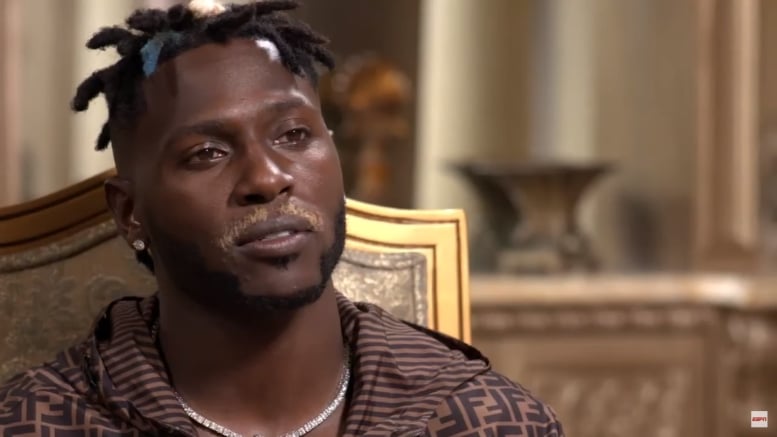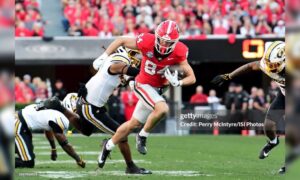Exceptionalism. When Antonio Brown first uttered the word in the locker room interview months back, many assumed that the Pittsburgh Steelers wide receiver had just made up the word. At least in the context in which he used it, he did, but it is a real word, and has real implications for the saga that is coming to an end.
That is because Brown practiced his belief in personal exceptionalism—that is, he believed that he was superior to the rest, and thus warranted different standards—which ultimately led to the Steelers obliging his ideology and finally resulted in a messy divorce.
Now make no mistake, they didn’t just take the wide receiver’s word about how great he is. They saw it first-hand, knew early on that they wanted to hold on to him as long as they possibly could, and resolved to do just about anything it would take to make that happen.
Thus started a long history of Brown as the exception to many of the organization’s standards, practices, and precedents, both in the locker room and in the front office. Because he is a player who had done things nobody else has ever done, the Steelers were willing to do things that they never do to placate him over the years.
Such as giving him a new contract just two years into his career. Admittedly, at the time, rookie contracts for non-first-round picks were only three seasons, so if a team wanted to sign a player to an extension, year three would have been the final year, but teams regularly made use of the restricted free agent status of fourth-year players.
They decided to push that to the wayside in 2012 after talks broke down with Mike Wallace, who chose not to report to training camp to negotiate. While they didn’t give Brown the deal they were offering to Wallace, it was a significant windfall for a player who had two touchdown receptions to his name and under 1500 yards.
According to multiple first-hand reports from the time, it was around that period that Brown’s behavior slowly but visibly began to change, becoming more self-interested and antagonistic. Because he was exceptional, and his contract that he just got proved it. He had money now. He can do what he wants.
As we know now, it turned out that he could do what he wanted, and he did what he wanted. The Steelers tried to hold to their precedents, but massaged them anyway. Toward the end of his extension, when it became clear that Brown significantly outperformed his contract, they took the exceptionally rare step—unique for them—of accelerating $2 million apiece into his two penultimate seasons before signing him to a four-year, $68-million extension as he entered the final year of his contract.
They made him, at the time, the highest-paid player in the NFL. He signed the contract. Surely at the time, he felt they did right by him. Until the next receiver got paid. And the next. And the next. He’s exceptional. He wants quarterback money now.
He can’t get it in Pittsburgh, so it’s time to leave. The Steelers tolerated what was essentially a boycott of his for months, on top of years of poor behavior being ignored or swept under the rug behind the scenes. Because he was so exceptional, and they wanted to keep him on the field.
Except they finally reached the point where they knew it was the end of the line. That wasn’t even when Art Rooney II literally flew down to Florida just to hear from him. Who knows exactly when it happened, but it ultimately resulted in their receiving trade compensation well below what most were hoping.
It’s easy to see how the organization’s special treatment over the years must have contributed to his developing this attitude, this outlook, this persona. The seeds for AB exceptionalism were already there, but Pittsburgh nurtured it, watched it grow, and now, have done some pruning in the hopes of watching the rest of the garden thrive with his removal.
You’ll haven noticed by now that I didn’t even get into his many off-field concerns, from his erratic behavior during interviews, his speeding incident, the furniture-toss session, the emotional outbursts, the domestic dispute, and so on.
He has accused reporters of racism for Tweeting that he looked like he was limping. He viciously attacked a reporter who was working on an article about some off-field incidents regarding former girlfriends and business partners that he didn’t want out. And accused former teammates of being traitors or attention-seekers for speaking out about their observations of time spent together.
This is all an extension in his personal belief in his own exceptionalism. He is permitted to behave like this because his abilities award him the privilege. We can’t exactly say he’s ‘learned his lesson’, either, because he got just what he wanted. Again. As he has so frequently over the past eight years.








